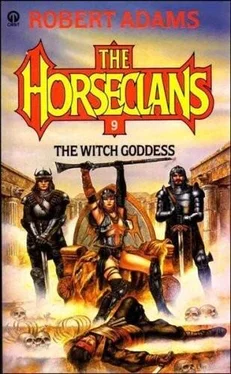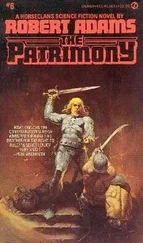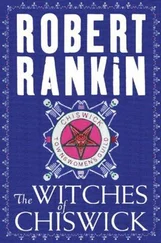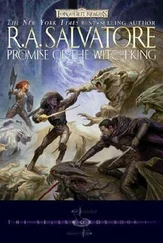But the next ones to come, Erica did not recognize, for neither had availed themselves of the “sessions” that Long Willy had offered all of his new bullies.
Lee-Roy and Abner were brothers, and neither had ever had a woman, nor did they want to, for they had each other. Such as they were not uncommon among the Ganiks, among which race all sorts of mental and physical aberrations—rare among other races—were commonplace.
All of the bullies, along with every other living soul in the camp, had stood and watched Strong Tom slowly die of his frightful wound, assuming the whole time that it had been Long Willy who, finally having mastered the use of the firestick, had revenged on Strong Tom’s blood that bully’s long years of insubordinations. But when the bully was finally dead, the two brothers thought it might be wise to ask Long Willy if he wanted them to stand post at the door of his cabin. Otherwise, aroused as they both were from witnessing the dying agonies of their late associate, they were of a mind to seek out their own hut for a bout of lovemaking.
It was a distinct shock to them to see the body of Long Willy stretched out on the floor of the cabin as dead as Strong Tom. Their gazes locked upon their dead leader, they did not even take notice of the naked woman until she spoke to them in Ahrmehnee.
“Who the hell are you two bastards? I warn you, if you come near me you’ll be as dead as that son of a bitch is!”
The threat was implicit, so neither man moved, but Abner said in atrociously accented and slurred Ahrmehnee, “We don’t neethuh of us tawk Ahrmnee; cain’tchew tawk no Ainglish?”
“Far better English than you, you filthy, ignorant savage!” snapped Erica. Then, noticing that they did not seem to understand twentieth-century American English any better than they had the Ahrmehnee, she switched to the tongue known as Trade Mehrikan, a widely spoken dialect of English which while debased to some extent was not slurred as far from its ancient origins as the bastard dialect of these Ganiks.
At last, she seemed able to communicate. “Did you kill Long Willy?” asked Abner, apparently spokesman for the pair.
Erica thought fast, then answered, “No, my firestick slew him. My firestick slays anyone without Power who touches it.”
Recalling the death of Long Willy’s elder brother from an almost identical wound, Abner and Lee-Roy thought that her reply made sense, but inquired, “But you did kill Strong Tom, din’t you?”
“Yes,” admitted Erica, adding, “I killed him because he… he abused me while I lay sick.”
Abner’s eyes grew wide. “You means fer to kill everbody whut fucked you? Everbody, atall?”
Erica nodded, grim-faced.
“Hot damn!” Abner smacked fist to palm. “Kin Lee-Roy and me watch? You won’ kill ’em too quick, will you? I hopes you kills ole Six-fingers Allen the first!”
The other Ganik spoke up then, saying, “Yeah, yeah, kill ole Six-fingers first, huh?” He giggled. “Thin kill the othuh Allen, thet Julian, huh?”
Corbett crouched ankle-deep in the running water, his saber in his left hand, his cocked pistol in his right. In the shadow, the pony’s rider sat dark against darkness, and there seemed to be at least one more mounted man behind him, so the officer leveled the pistol’s muzzle at what seemed to be the chest area of the saberman, thumbed off the safety and…
“Hold on, there, Major,” said a deep, familiar voice. “It’s me, Sergeant Gumpner, me and Allison.” Then, his voice cracking slightly, he said, “Thank God you’re still alive, sir. I… we all thought you all was dead back there.”
Corbett had his men cut the hobbles off all the ponies they could find and catch; the sole true horse he had them add to their own collection of animals, for, despite its poor condition, it appeared to be of a similar breed to his own big troop horse.
When all of the Broomtowners were gathered in the tiny, hidden plateau area, the sergeant rendered his report, then took Corbett over to where Harry Braun lay, feverish and babbling in delirium. The officer examined the swollen leg carefully, then wiped off his befouled hands and arose, frowning.
“I think you were right, Gumpner—he does appear to be in the early stages of gangrene. I don’t know how much good I can do, if any at all. God, I wish Erica were here! But we can’t move him the way he is, not even in a litter.
“So have another fire laid closer, over by that flat rock, eh? I’ll sack out here, where I can keep an eye on him through what’s left of this night, and when the sun’s bright I’ll do what I can to drain that leg.”
Seated side by side on the stony ground, leaning against a pair of saddles, Corbett and Gumpner watched the delirious scientist, smoked their pipes and carried on a low-voiced conversation for a couple of hours. In addition to their official relationship, the two were close friends of many years’ standing, and so, knowing Gumpner’s innate curiosity, Corbett not only gave him an account of the battle at the defile, but told him just what decisions he had made and why he had chosen what courses he had from among other alternatives, freely and openly answering such questions as the noncom put to him.
In Gumpner’s mind, it was continuing education at the feet of a man that he and all of the other Broomtowners all but worshiped. Of course, they deeply respected all of the other men and women from the Center. For how could they—ordinary, short-lived men, only a few generations removed from a savagery no less primitive than that of their neighbors—help but respect men and women whose lives were measured in many hundreds, not a few score, of years, men and women whose highly developed minds had lived since before that centuries-past war which had destroyed the fantastic-sounding civilization built by the distant ancestors of today’s howling savages? But most of the Center people were at best cool, distant objects of deference who often behaved as if the Broomtowners were trained and mildly intelligent animals or, at best, retarded but usually obedient children.
Major Jay Corbett, on the other hand, spent a minimum of his time at the Center. There had been very few weeks during the thirty years that Gumpner had served in a military capacity when Corbett had not been either in Broomtown or out somewhere in the hills and woods with Broomtown men on a training exercise, a patrol, a reconnaissance or, more rarely, a short campaign against threatening tribes.
Where other men and women of the Center, especially the scientists, frequently were scornful and patronizing of the Broomtowners, in particular of the career soldiers of Broomtown who often risked and sometimes gave their lives to guard and protect these same Center folk on their expeditions into the territories of hostile tribes and races, Corbett had never been stinting in his praise of the Broomtown men who had earned such praise. Furthermore, Gumpner knew for a fact that Corbett not only had gone as high as the Center Director himself to see about reducing or eliminating punishments meted out to Broomtowners for supposed disobediences or insubordinations having to do with Center folk resident in Broomtown.
When the grizzled old soldier had ridden off, south from the defile, he had been a subordinate obeying the orders of his superior. But here, near the small fire, smoking and listening to the fatherly man, this patient, ever-understanding man, he thought that he at long last comprehended the true meaning and depth of friendship.
His late father, Sergeant Major Gumpner, who had served under Major Corbett for more than forty years before retiring to nurse his arthritis and old wounds, had once long ago tried to explain this very variety of emotion he now felt. Now, only after all these years, did Gumpner feel that he truly, truly understood what the old man had been trying to convey to him.
Читать дальше












